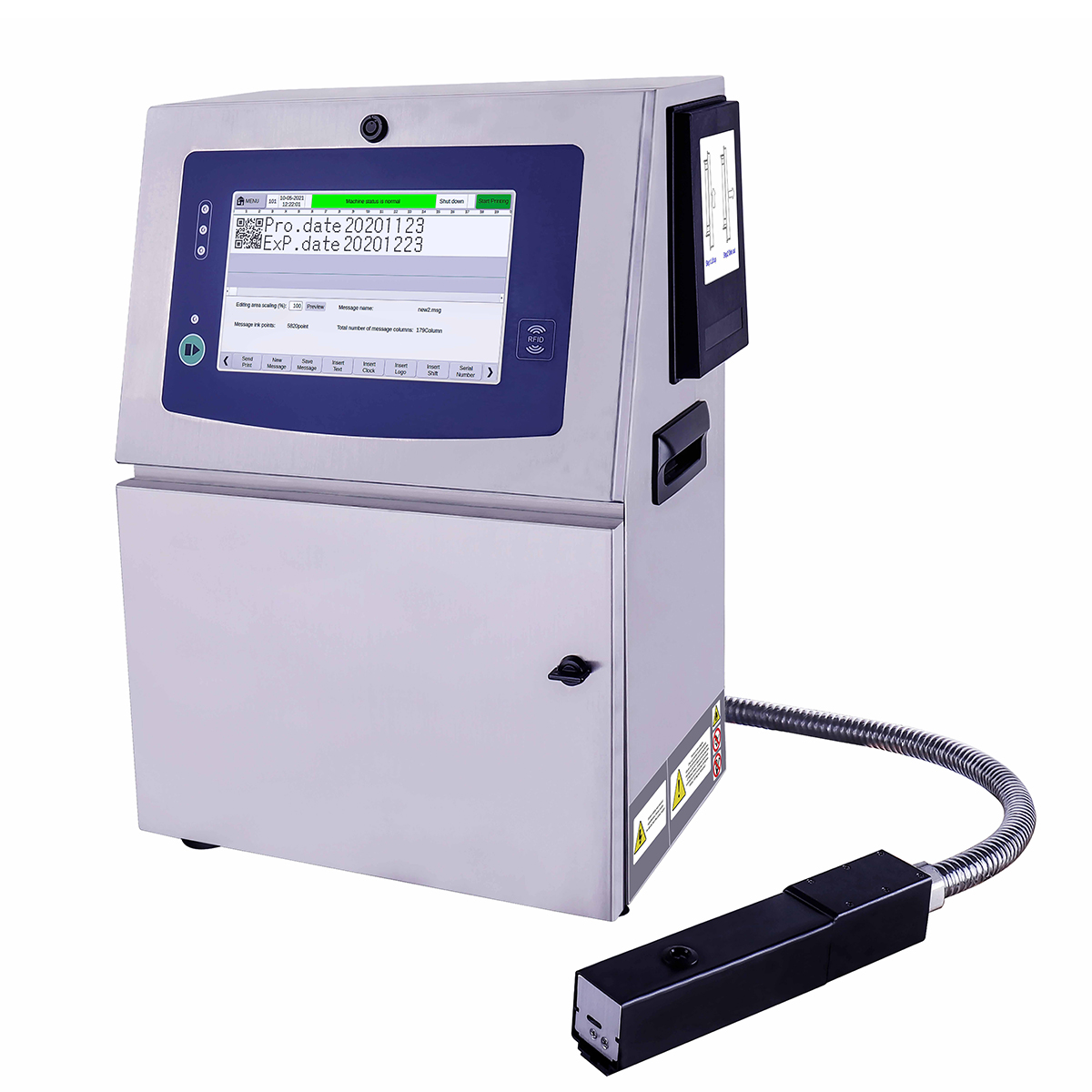Understanding the Working Principle of Continuous Inkjet Printers
Continuous Inkjet Printers, often abbreviated as CIJ printers, are sophisticated machines designed to produce high-quality prints at remarkable speeds. They are primarily used for coding, marking, and printing variable information on various substrates, including paper, plastic, metal, and more. The versatility of CIJ printers makes them a vital component in industries ranging from food and beverage to pharmaceuticals and electronics.

The Core Working Principle
Generating Ink Droplets
At the heart of a Continuous Inkjet Printer lies a tiny, yet intricate, ink delivery system. This system consists of a high-pressure pump that forces ink through a narrow nozzle, creating a continuous stream of liquid. This stream is then broken down into individual droplets using a piezoelectric crystal or a vibrating diaphragm, depending on the printer's design.
Deflection by Electrostatic Fields
Once the droplets are formed, they pass through a charging electrode. Each droplet is charged positively or negatively based on the desired print pattern. An electrostatic field then guides these charged droplets towards a pair of deflection plates. The voltage applied to these plates determines whether a droplet will be deflected onto the substrate or continue its journey to a gutter for recycling.
Printing on the Substrate
The deflected ink droplets reach the substrate, forming the desired characters or patterns. Due to the incredibly high speed at which this process occurs, Continuous Printer can produce thousands of characters per second, making them ideal for applications that demand rapid and continuous printing.
Key Components of a CIJ Printer
Ink System
The ink used in CIJ printers is specially formulated to meet various requirements. It must dry quickly to prevent smudging, adhere well to different surfaces, and provide long-lasting, legible prints. Additionally, these inks are available in a wide range of colors, allowing for vibrant and eye-catching designs.
Nozzle and Deflection Plates
The precision and durability of the nozzle and deflection plates are critical for maintaining consistent print quality. They must withstand continuous operation without clogging or deteriorating in performance.
Control Unit
The control unit is the brain of the CIJ printer, responsible for orchestrating the entire printing process. It ensures precise droplet formation, accurate deflection, and synchronizes all components to create the intended print pattern.
User Interface
Modern CIJ printers come equipped with user-friendly interfaces, allowing operators to adjust settings, monitor ink levels, and troubleshoot issues effortlessly. These interfaces enhance the overall usability of the printer.
Applications of CIJ Printers
OEM Continuous Inkjet Printer find applications in a wide range of industries, each benefiting from their unique capabilities:
Food and Beverage Industry
In this industry, CIJ printers are used to label packaging with expiration dates, barcodes, and nutritional information. The ability to print on various surfaces and the high-speed operation make them invaluable for ensuring product traceability and compliance with labeling regulations.
Pharmaceutical Industry
In pharmaceutical manufacturing, CIJ printers are utilized for imprinting batch numbers, manufacturing dates, and product information on packaging and labels. This ensures product authenticity and helps in tracking the production process.
Electronics Industry
CIJ printers are crucial for marking electronic components with serial numbers, logos, and other identification codes. The precision and speed of CIJ printing are essential for maintaining quality control in electronics manufacturing.
Automotive Industry
In the automotive sector, CIJ printers are used to label parts and components, helping with inventory management and quality assurance. They are particularly useful in printing on materials like rubber and metal.
Conclusion
Continuous Inkjet Printers represent a pinnacle of printing technology, offering unrivaled speed, precision, and versatility. Their ability to print on various substrates and adapt to the needs of different industries makes them indispensable tools in today's manufacturing landscape.
As industries continue to evolve, CIJ printers will undoubtedly play a crucial role in ensuring product quality, compliance, and traceability. Their importance in our modern world cannot be overstated, and their impact on the printing industry will continue to be felt for years to come.
Previous: What Are The Applications of Electric Wheel Loaders?
Next: What is The Life Expectancy of a Fiberglass Water Tank?
If you are interested in sending in a Guest Blogger Submission,welcome to write for us!




Comments
0